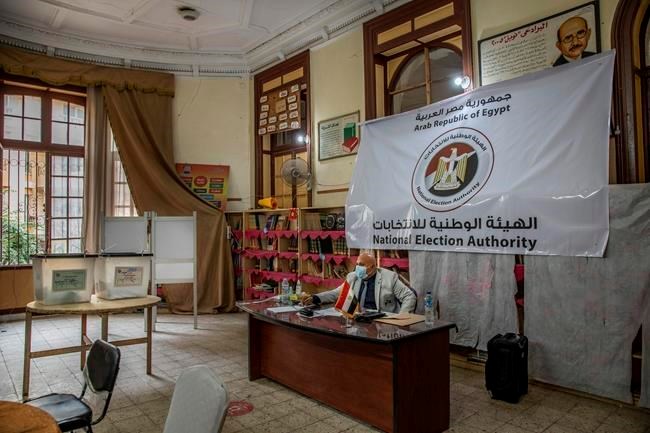CAIRO — Egyptians began voting Saturday in the second and final stage of the country’s parliamentary elections, after a relatively low turnout in the first round that embarrassed the government of President Abdel-Fattah el-Sissi.
Polling
Critics say the 596-seat legislature will largely resemble the previous one, which was little more than a rubber stamp for the president's policies, leaving the former military general with almost unchecked powers.
“We may observe some real competitions among candidates in several districts, however, this competition has nothing to do with the broad idea of free and fair elections, it is a competition only allowed among loyal individuals," said Ahmed Abd Rabou, a visiting assistant professor at the Josef Korbel School of International Studies-University of Denver who specializes in Egypt.
The government deployed thousands of police and troops to safeguard the two-day vote. Precautionary measures were also taken to stem the spread of coronavirus pandemic, amid warnings by the government about a second wave of the pandemic. Egypt has shown a slight increase in daily confirmed cases in the past two weeks.
A total of 568 seats in the lower chamber are up for grabs in the election, with half the seats reserved for candidates running as individuals. The other 50% of seats in the House of Representatives are for over 1,100 candidates running on four party lists.
The president will name 28 seats, or 5%, bringing the total number of seats in the lower chamber to 596.
A quota of 25% of the seats are reserved for women, according to
The vote came amid the government’s years-long heavy crackdown on dissent. Critics have been silenced or jailed, and opposition parties were left with narrow room to campaign in the Arab world’s most populous county.
The first stage of the vote took place October 24-25 in the 14 other provinces that included the Mediterranean port city of Alexandria and several southern provinces.
Just over nine million, or 28%, cast their ballots in the first stage, according to the National Election Authority. That turnout dealt a blow to el-Sissi’s government that lobbied for high participation in the vote to ensure it has credibility.
For weeks before the vote, pro-government media called voting a patriotic duty and urged Egyptians to vote in high numbers. Most media outlets in Egypt are owned by the state or run by pro-government businessmen.
The pro-government Mustaqbal Watan, or “Nation’s Future,” party has 284 individual candidates across the country running for the House. It also leads the front-runner party list running for the House.
In the first stage, the party secured 148 seats, making it the likely majority in the chamber.
Samy Magdy, The Associated Press



